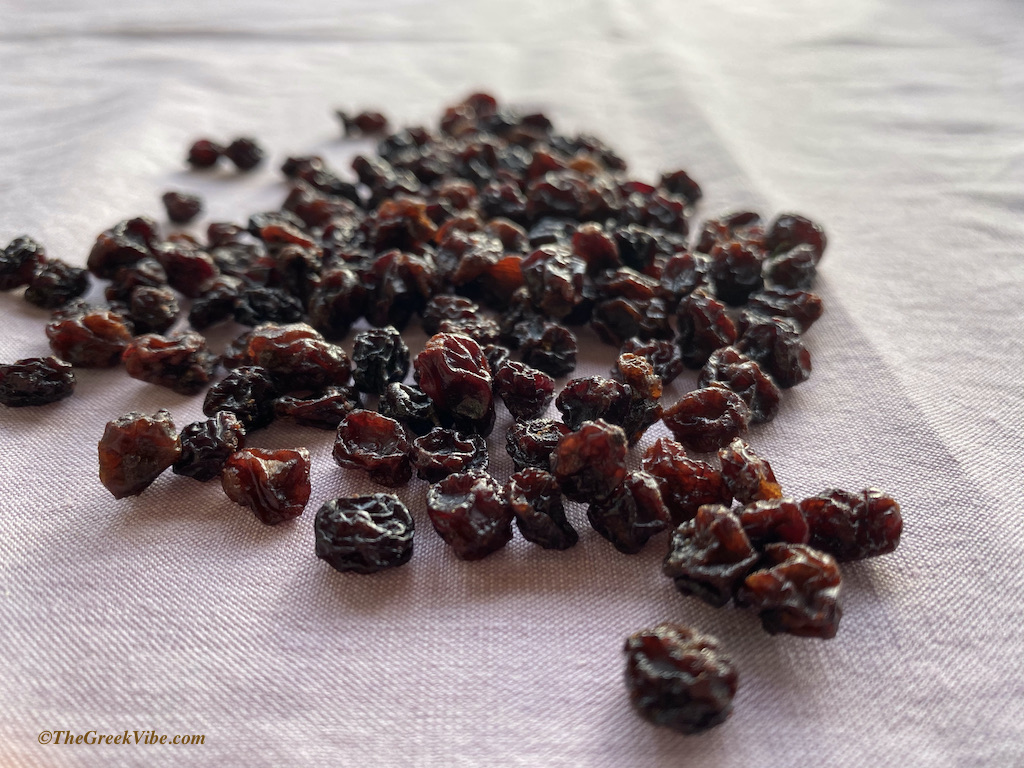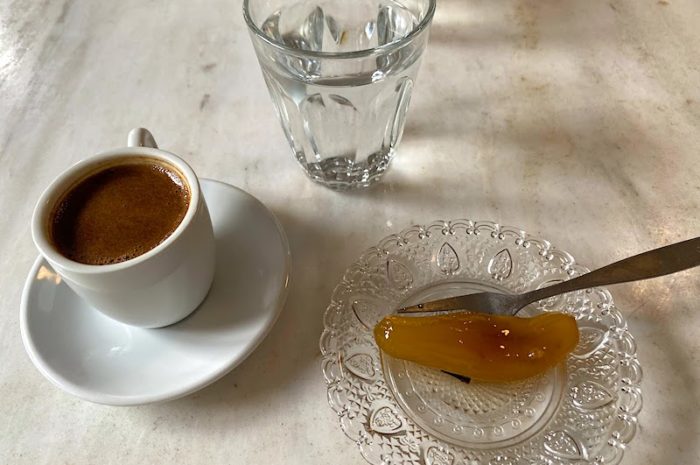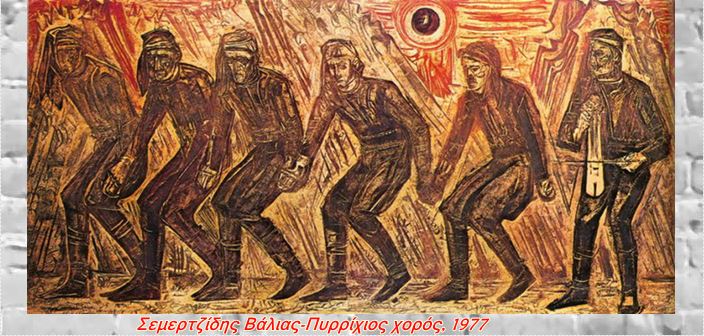
(This post has been updated)
No tribute to Pontic music would be complete without adding Klavdia, the 22-year-old singer who brought the story and sound of her Pontic ancestors to millions of viewers during the 69th Eurovision Song Contest in Basel, Switzerland.
Her song, “Asteromata” (“Women with the Starry Eyes”), co-written with Arcade, is about loss, and displacement. Through the deeply personal lyrics, Klavdia tells the story of her ancestors, Pontic Greeks who were forcibly uprooted from their homeland and relocated to the USSR, like thousands of others during the Pontian Genocide.
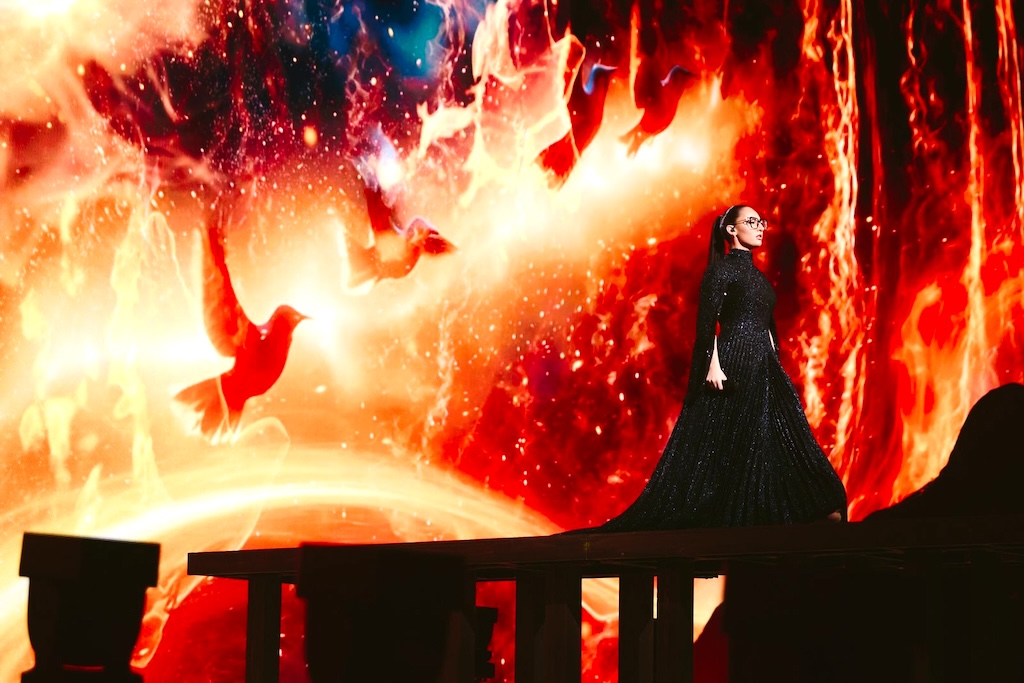
It was her grandmother Claudia and her moving stories that inspired her to write “Asteromata” and to perform the song with such passion. Her performance during the Eurovision 2025 semifinals was gripping, captivating audiences with her powerful vocals and emotion.
“For me, it was a priority to write a song I could identify with,” she has said. “A song that would connect me with my past.”
“Asteromata is about displacement and seeking refuge; shared human experiences in Greece, not only as part of our history but for thousands who seek a better life here. My family is of Pontic origin. They were refugees too.”
Her haunting song “Asteromata” honors the memory of the Pontic Greeks, displaced but never silenced. Rooted in loss, kept alive through music, dance, and resilience. Winning or not, Klavdia has managed to carry forward the legacy of Pontic music.
Reviving Pontic Greek History Through Song
The rugged cliffs along the desolate coastline of the Back Sea and the cavernous gorges of Pontus have nurtured a music so powerful and proud that only one who has travelled to these weathered lands or is a Pontic Greek can grasp the deeply-rooted history behind the compelling rhythm and the mournful lyrics.
Located on the southern shores of Asia Minor along the coast of the Black Sea, Pontus (today part of Turkey) – once a bastion of Hellenism due to its key geographical position – was brimming with thriving Greek communities in its famed cities Trapezounta, Sampsunta and Sinopi to name but a few.
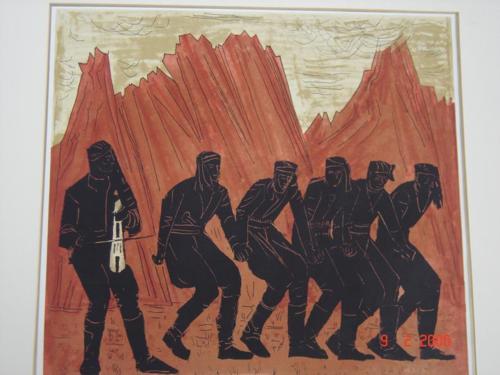
Pontic songs are Greek demotika (or traditional folk songs) handed down from generation to generation through word of mouth. As such, they are timeless. Much like in Cretan music, the Pontic lyre (kemenches) takes center stage dressing the words of love, pride, death and the triumph of the Pontic people with its enthralling and, at times, woeful song. Most of the lyrics in Pontic songs are in Pontic Greek – a dialect spoken to this day. Another primary instrument besides the lyre is the “daouli” – a large double-headed leather drum whose deep pulsating sound is the driving force behind traditional Pontic music. Other instruments include the Pontian flute (gaval).
Pontic Greek Music: A Link to the Homeland
Pontic music is divided into three main periods: songs sung during Byzantium from the 10th century AD to AD1461, also known as the “akritika” – epic songs about the exploits of the “akrites”, orthe military units guarding the Byzantine Empire’s eastern (facing the Muslim world) borders.
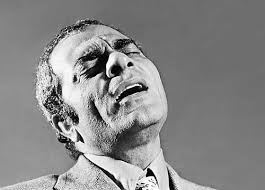
The post-Byzantium period between the 15th and 19th centuries – songs mourning the fall of Constantinople to the Ottoman Turks.
And the contemporary period: songs about the continuation of the race and of the Pontic traditions. “Gourban se son to theleman”, a 2011 release with Babis Kemanetzidis and Pela Nikolaidou.
Unlike most demotika songs from other regions in Greece, the Pontic songs focus primarily on the trials and tribulations of the Pontian people and serve as aural testimonies of times past that should never be forgotten.
Here with the immense voice of Stelios Kazantzidis (photo), a song that speaks to the heart of many Greeks far and wide. “Aitents eparaperanen” in Pontic Greek about “feeling foreign abroad and at home”.
►Greek Music 101
Together with celebrated Pontian lyre player and singer Chrysanthos, Kazantzidis, whose descent was from Pontus, says in the sleeve notes of a tribute album titled “T’Aidonia tou Pontou” (The Songbirds of Pontus):
“For years now I have with my voice or with my silence sung of the trials, tribulations, passions, desires, fears and wishes, joys and sorrows of the humble, the oppressed and the downtrodden of this here homeland.
The time has come to pay back a huge debt to the birthplace of my parents, the legendary and blood-soaked, historic Pontus. A land I did not live in, nor did I come to know, but which I worshipped with all my soul: my fatherland (“patrida” in Greek), which was lost in that grand bazaar of shame in our century, when people were treated as an exchangeable product. I want this album to serve as a memorial to the victims of that atrocity but also as a message in today’s turbulent times.
No more lost homelands. No more tears. Finally, I wish in this way to honor all those who are hopelessly homesick, nostalgic of the Pontian soil, those who were forced to leave without ever being able to see their tormented land again, and the few remaining elderly still alive today who remind us with their presence of the greatest tragedy but also massacre of this century. If only I could do more. It would be redemption.”
►‘Ellada’ – The musical tale of our Mother(land) Greece
Pyrricheios: The Ancient War Dance of Pontus
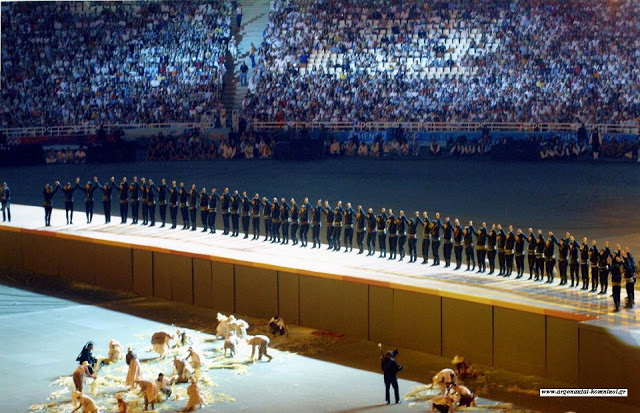
Photo credit e-Pontos.gr
The Pontians are known across the globe for the “Pyrricheios” – one of Greece’s most ancient war dances dating as far back as Homer. The thunderous stomping of the feet and weapons was meant to scare off the enemy and to serve as a “warm up” before going into warfare, firing up the courage of the warriors. Despite being danced by fighters across the country since antiquity, the pyrricheios has been preserved to this day by the Pontic Greeks who dance in a straight line in military formation (rather than the original circle) without the weapons.
It was as late as 1994 that May 19 was to remain in history as the day commemorating the Genocide of the Pontic Greeks.
The Genocide of the Pontian Greeks by the Turks between 1914 and 1923 took the lives of over 350,000 people. Entire populations of Pontic Greeks who survived the brutality were forcefully displaced seeking refuge in the USSR (today Russia) or later after the Asia Minor Catastrophe in 1922 in Greece.
The majority of Pontic Greeks set up their new homes as refugees in the Athens neighborhood of Nea Ionia after the exchange of populations in 1923. Read more about this interesting area here.
🎶 I conclude today’s post with one of the most memorable and moving moments in modern Greek history: the ancient Pyrricheios of Pontus performed in front of millions of viewers during the 2004 Olympic Games in Athens.
The Greek Vibe remembers…
Enjoyed this Post? Share and Pin it!
*Photo credit: Valias Semertzidis 1911-1983 – the painter of Pontus.


